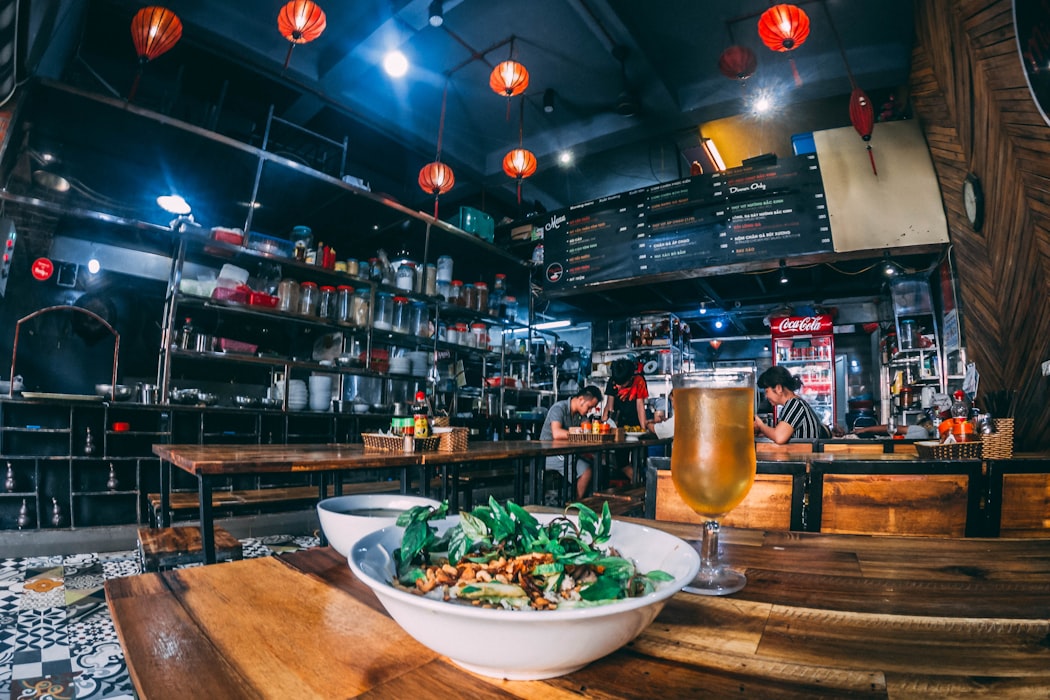Top 10 Most Common Vietnamese Questions Asked by the Locals
You’re waiting for your Grab driver, standing next to a Vietnamese uncle. Like a typically friendly Vietnamese person, he started making a conversation with you and asked you a bunch of questions.
Then, you started smiling awkwardly!
At that moment, deep down, you wish that you have pushed yourself a little further to learn some basic Vietnamese phrases.
It’s never too late!
Here are the top 10 most common Vietnamese questions asked by the locals, curated for you by a local.
- Bạn tên là gì? - What is your name?
- Bạn là người nước nào? - Which nationality are you?
- Bạn bao nhiêu tuổi? - How old are you?
- Bạn làm gì? - What job do you do?
- Bạn tới Việt Nam để làm gì? - What do you come to Vietnam for?
- Bạn ở Việt Nam bao lâu rồi? - How long have you stayed in Vietnam?
- Bạn học tiếng Việt bao lâu rồi? - How long have you learned Vietnamese?
- Bạn thích Việt Nam không? - Do you like Vietnam?
- Bạn biết ăn đồ ăn Việt Nam không? - Do you know how to eat Vietnamese food?
- Bạn thích món gì nhất? - What dish do you like the most?
Now, let’s take a closer look at each question, and see how you can answer them to impress the Vietnamese locals.
1. Bạn tên là gì?
Literally: "You name is what?"
This question means “What is your name?”
In this sentence:
- tên means “name”
- gì is the question word “what”, often placed at the end of a question.
To answer this question, you can say:
- Mình là [your name] - I’m [your name]
- Mình tên là [your name] - My name is [your name]
Example:
Mình là Caroline - I am Caroline
Mình tên là Caroline - My name is Caroline
2. Bạn là người nước nào?
Literally: "You are people (of) country which?"
This question means “Which nationality are you?”.
In this sentence:
- người means “people”
- nước means “country”
- nào is the question word “which”, often placed behind the noun that it refers to.
To answer this question, you can say:
- Mình là người [country name] - I am [ ]
Example:
Mình là người Việt Nam - I am Vietnamese
If you don’t know how your country/nationality is called in Vietnamese, you can refer to my list of 50 countries & nationalities in Vietnamese.
3. Bạn bao nhiêu tuổi?
Literally: "You how many age?"
This question means “How old are you?”.
You might be wondering:
“Isn’t it rude to ask for age, especially for women?”. Don’t worry.
In Vietnam, it is common to ask for a person’s age, even if that person is a woman. So what’s the reason? Well, we want to know the person’s age so that we can determine the appropriate personal pronouns to use to show respect.
In this sentence:
- tuổi means “age"
- bao nhiêu is the question word “how many, how much”, often placed before a noun to ask about its quantity.
To answer this question, you can say:
- Mình [your age] tuổi - I’m [number] years old
Example:
Mình 28 tuổi - I’m 28 years old
If you need to brush up your Vietnamese numbers with audio, here is a useful mini-course of Vietnamese numbers, money and bargaining.
4. Bạn làm gì?
Literally: "You do job what?"
This question means “What do you do?”.
In this sentence:
- làm means “to do”
- gì, as we learned, is the question word “what”.
To answer this question, you can say:
- Mình là [your job title] - I am [job title]
- Mình làm [your job description] - I do [job description]
- Mình làm ở [your company] - I work at [company]
- Mình làm cho [your company]- I work for [company]
Examples:
Mình là giáo viên tiếng Anh - I’m an English teacher
Mình làm việc tự do - I do freelancing job (as a freelancer)
Mình làm cho ILA - I work for ILA
You can substitute [your job title] with one of these common jobs in Vietnamese:
giáo viên - teacher
lập trình viên - programmer
người mẫu - model
đầu bếp - chef
kỹ sư - engineer
tình nguyện viên - volunteer
du học sinh - overseas student
5. Bạn tới Việt Nam để làm gì?
Literally: "You come (to) Vietnam to do what?"
This question means “What do you come to Vietnam for?”.
In this sentence:
- tới = đến means “to come, to arrive”
- để làm gì is the question word “for what”, often placed at the end of a question.
To answer this question, you can say:
You can substitute [your purpose] with one of these common reasons in Vietnamese:
đi du lịch - to travel
làm việc - to work
thăm bạn - to visit friends
thăm gia đình - to visit family
6. Bạn ở Việt Nam bao lâu rồi?
Literally: "You stay in Vietnam how long already?"
This question means “How long have you stayed in Vietnamese?”
In this sentence:
- ở means “to stay in/at”, a very common word in Vietnamese
- bao lâu is the question word “how long”, often placed at the end of a question
- rồi means “already”, which is used to talk about something began in the past, up to the present
To answer this question, you can say:
- Mình ở Việt Nam [duration] rồi - I’ve stayed in Vietnam for [duration] already
You can substitute [duration] with a number + days/months/years
ngày - day / days
tuần - week / weeks
tháng - month / months
năm - year / years
Example:
Mình ở Việt Nam 1 năm rồi - I’ve stayed in Vietnam for 1 year already
7. Bạn học tiếng Việt bao lâu rồi?
Literally: "You learn Vietnamese how long already?"
This question means, “How long have you learned Vietnamese?”.
In this sentence:
- học means “to learn; to study”
- tiếng Việt means “Vietnamese language”
- bao lâu rồi, just like the above question, it means “how long already?”
To answer this question, you can say:
- Mình học tiếng Việt [duration] rồi - I’ve learned Vietnamese for [duration] already
Example:
Mình học tiếng Việt 2 tháng rồi - I’ve learned Vietnamese for 2 months already
8. Bạn thích Việt Nam không?
Literally: "You like Vietnam or not?"
This question means, “Do you like Vietnam??”.
In this sentence:
- thích means “to like”
- không literally means “or not”. It is often placed at the end of the sentence to form a basic Yes-No question, “Do you..?” / “Does he..? / etc”
To answer this type of yes-no question, you can reply with:
- Có - Yes (affirmative)
- Không - No (negative)
I hope your answer to this question would be YES!!!

Bún đậu mắm tôm - Vietnamese Vermicelli With Fried Tofu & Shrimp Paste
9. Bạn biết ăn đồ ăn Việt Nam không?
Literally: "You know eat Vietnamese food?"
This question means, “Do you know how to eat Vietnamese food?”.
You might be thinking:
What kind of question is this!?
Apparently, since Vietnamese food and Western food are two completely different cuisines, the locals assume foreigners cannot eat Vietnamese food. Just think of some of the weird dishes that you’ve seen or tasted, you’ll know what I mean!
I’m talking about these notorious dishes!
nước mắm (fish sauce), mắm tôm (fermented shrimp paste), hột vịt lộn (balut); măng (bamboo shoots), etc …
Back to our question! In this sentence:
- biết means “to know”
- ăn means “to eat”
- đồ ăn means “food”
Since this one is just another Yes-No question, you can reply with:
- Có - Yes (affirmative)
- Không - No (negative)

Mì Quảng - Underrated Central Vietnamese Noodles
10. Bạn thích món gì nhất?
Literally: "You like what dish the most?"
This question means, “What dish do you like the most?”.
In this sentence:
- thích means “to like”
- món means “dish (food)”
- nhất means “the most”, is often placed at the end of the sentence
To answer this question, you can say:
- Mình thích [name of the dish] nhất - I like [name of the dish] the most
Example:
Mình thích ăn cơm tấm nhất - I like broken rice the most
I’ll upload a video that teaches you how to pronounce the most famous and delicious Vietnamese food.
You can join my newsletter or subscribe to my YouTube Channel - Speak Vietnamese with HowToVietnamese to get a notice when this video comes out.
Be the first to know
Join our Newsletter to receive monthly learning tips and updates!

